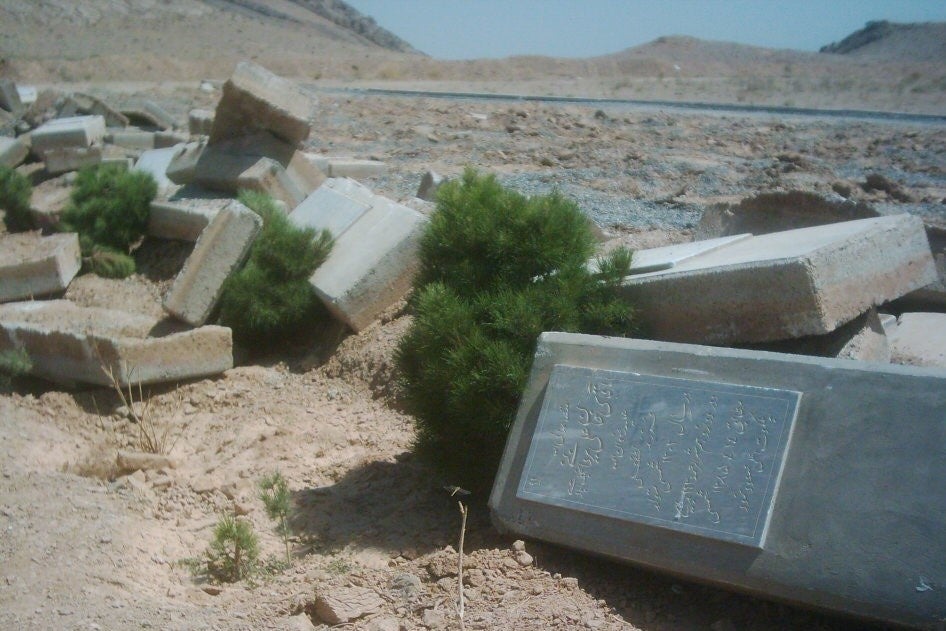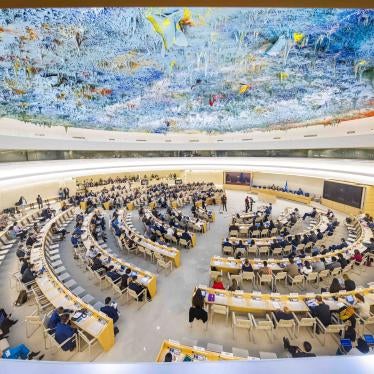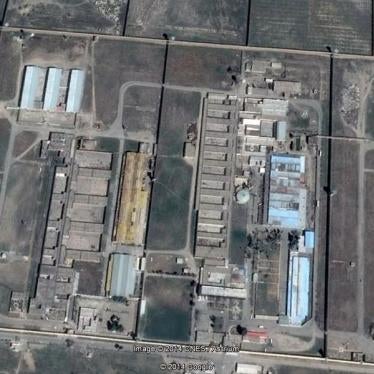- Iranian authorities’ decades-long systematic repression of Baha’is simply because they belong to a faith group amounts to the crime against humanity of persecution.
- Government agencies arrest and imprison Baha’is arbitrarily, confiscate their property, restrict their school and job opportunities, and even deny them dignified burials.
- UN member states should support national prosecutions under the principle of universal jurisdiction and renew the UN Fact-Finding Mission's mandate.
(Beirut) – Iranian authorities’ decades-long systematic repression of Baha’is amounts to the crime against humanity of persecution, Human Rights Watch said in a report released today.
The 49-page report, “‘The Boot on My Neck’: Iranian Authorities’ Crime of Persecution Against Baha’is in Iran,” documents Iranian authorities’ systematic violation of the fundamental rights of members of the Baha’i community through discriminatory laws and policies that target them. Human Rights Watch found that Baha’is face a spectrum of abuses. Government agencies arrest and imprison Baha’is arbitrarily, confiscate their property, restrict their education and employment opportunities, and even deny them dignified burial.
“Iranian authorities deprive Baha’is of their fundamental rights in every aspect of their lives, not due to their actions, but simply for belonging to a faith group,” said Michael Page, deputy Middle East director at Human Rights Watch. “It is critically important to increase international pressure on Iran to end this crime against humanity.”
The report draws on extensive documentation by Human Rights Watch and Iranian human rights groups regarding violations against Baha’is in Iran. Researchers reviewed government policies, court documents, and communications with Baha’is. Information was accessed through the Archive of the Persecution of Baha’is in Iran and documents from the Human Rights Activists News Agency. Human Rights Watch also conducted interviews with 14 Baha’is remotely in Persian, both within Iran and abroad place between May 2022 and March 2023.
Baha’is are the largest unrecognized religious minority in Iran. They have been the target of harsh, state-backed repression since their religion was established in the 19th century. After the 1979 revolution, Iranian authorities executed or forcibly disappeared hundreds of Baha’is, including their community leaders. Thousands more have lost their jobs and pensions or were forced to leave their homes or country.
Since 1979, the Islamic Republic of Iran has codified its repression of Baha’is into law and official government policy, vigorously enforced by security forces and judicial authorities. Judicial authorities interpret vague national security laws to label Baha’is an outlawed religious minority, branding them as a threat to national security. Human Rights Watch believes that this sustained systematic repression deliberately deprives Baha’is of their basic rights, constituting the crime against humanity of persecution.
The Rome Statute, the founding treaty of the International Criminal Court, defines persecution as the intentional and severe deprivation of fundamental rights contrary to international law by reason of “the identity of the group or collectivity,” including on national, religious, or ethnic grounds. Under international law, crimes against humanity are some of the most serious crimes “committed as part of a widespread or systematic attack directed against any civilian population, with knowledge of the attack.”
Court documents demonstrate authorities' characterization of the Baha’i faith as a “deviant cult” and its adherents as members of an “illegal group.” Official state policies outlined in documents reviewed by Human Rights Watch explicitly bar them from employment and education opportunities, deny them pensions, and seize their property.
Baha’is who spoke to Human Rights Watch described their persecution as a series of violations that begin with their first encounters with the Iranian state and affect every aspect of their lives, including education, employment, and marriage.
“[When I left Iran to continue my education], I did not intend to emigrate,” said Negar Sabet, 38-year-old daughter of Mahvash Sabet Shahriari, a prominent member of the Baha’i community currently imprisoned in Iran. She said:
But my experience at the university outside of the country was very different, as if for the first time a burden was lifted off my shoulders and the boot on my neck had disappeared … There [abroad] I experienced a strange freedom, and for the first time I was equal with other people, and no one was pulling themselves away from me.
Iranian authorities’ 1991 Iranian Supreme Revolutionary Cultural Council memorandum outlines state policies systematically discriminating against Baha’is, restricting their access to jobs, education, and economic opportunities. Iranian authorities also use legal provisions to deny Baha’is employment, pensions, and benefits, alongside targeting Baha’i-owned businesses, economically strangling the community by confiscating hundreds of members’ properties.
United Nations member states should support accountability measures, including investigation and prosecution at the national level under the principle of universal jurisdiction, and renew the UN Fact-Finding Mission's mandate, Human Rights Watch said. The UN Human Rights Council established the Independent International Fact-Finding Mission on the Islamic Republic of Iran on November 24, 2022, to investigate alleged human rights violations related to the protests that began on September 16, 2022, after the death of a 22-year-old Iranian-Kurdish woman in the custody of the country’s abusive morality police especially with respect to women and children.
“The Iranian government's systematic oppression of Baha'is casts a shadow over every aspect of their lives and is a distressing testament to its discriminatory treatment of religious and ethnic minorities, leaving no aspect of their lives untouched by injustice,” Page said.









